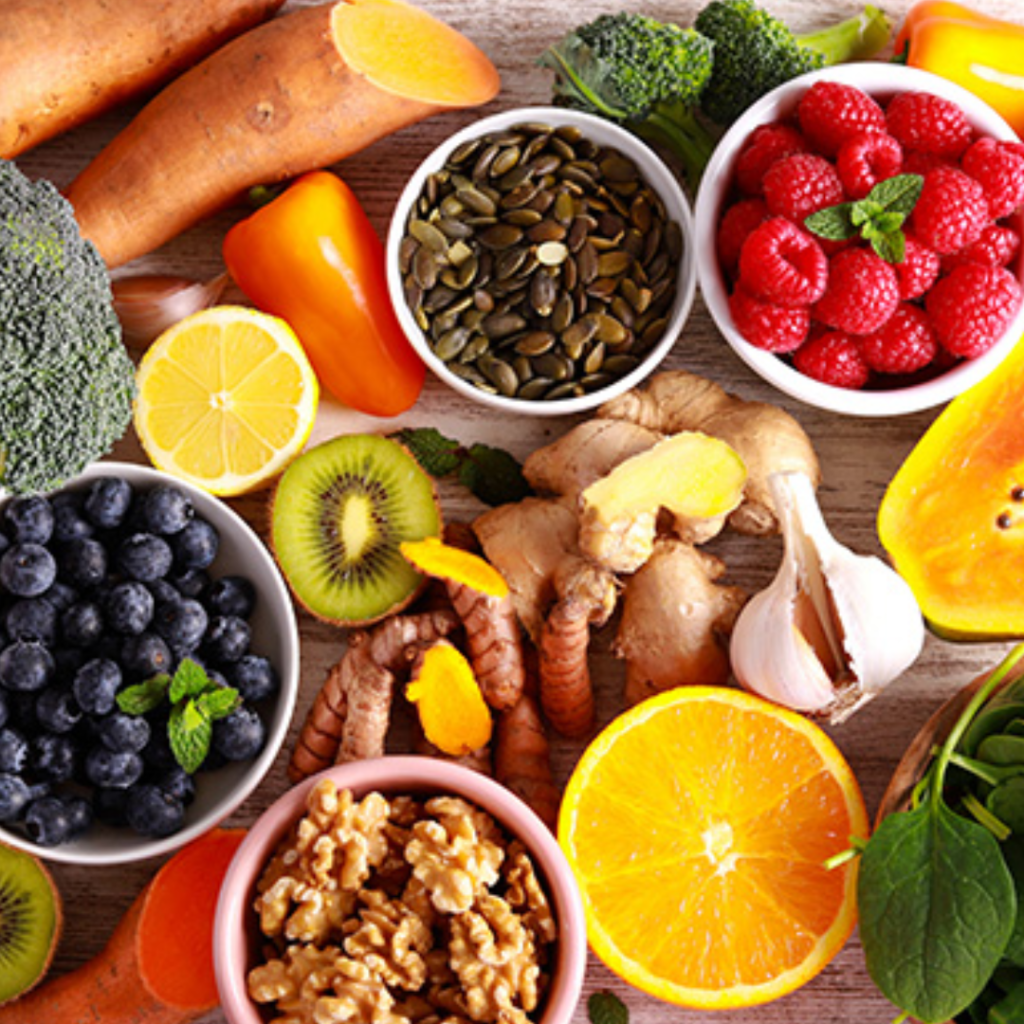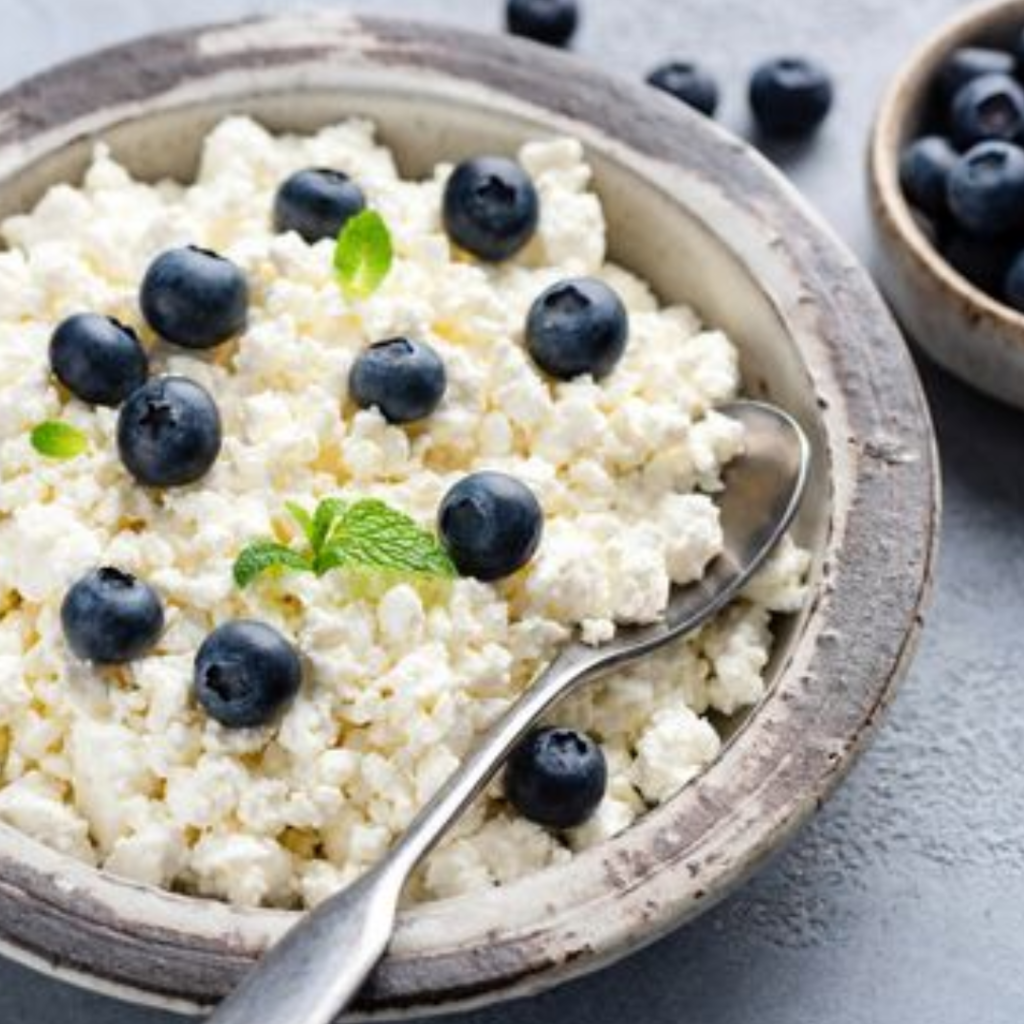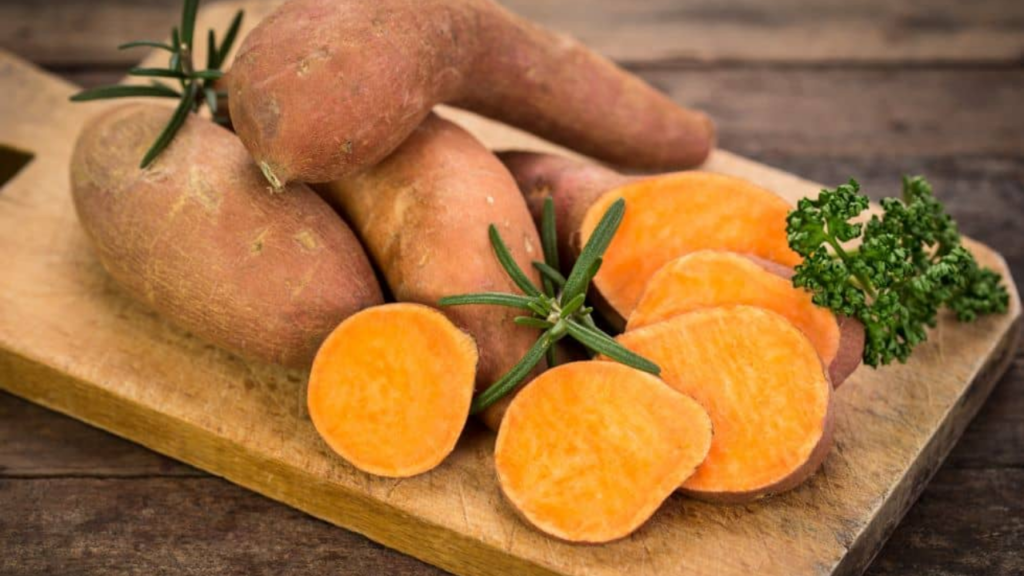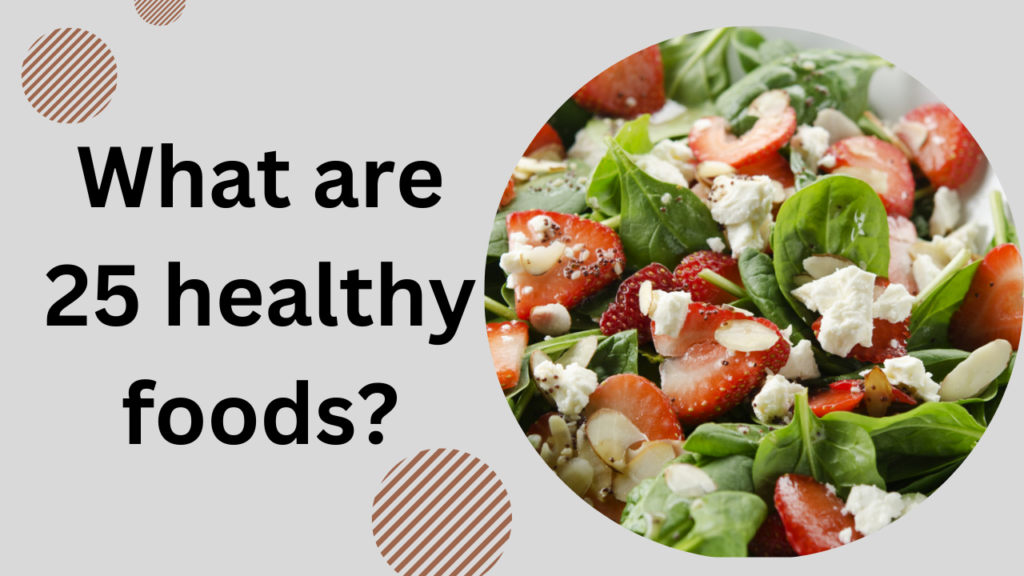Welcome to our ultimate guide on healthy eating! If you’re looking to revamp your diet and incorporate more nutritious options into your daily meals, you’ve come to the right place.
In this blog post, we will explore 25 delicious and nourishing foods that can help you maintain a balanced diet, support weight loss goals, and promote overall well-being.
So grab a seat, get ready to discover some mouth-watering options, and let’s dive into the world of healthy eating together.
Healthy foods to eat everyday
Eating healthy foods every day is key to providing your body with the necessary nutrients it needs to thrive. Incorporating a variety of fruits and vegetables into your meals can help boost your immune system, improve digestion, and provide essential vitamins and minerals.
Opt for whole grains like quinoa, brown rice, or oats for sustained energy throughout the day. These complex carbohydrates are rich in fiber and can help regulate blood sugar levels.
Lean sources of protein such as chicken breast, tofu, or legumes are vital for muscle repair and growth. Including healthy fats from sources like avocados, nuts, and olive oil can support heart health and brain function.
Don’t forget about hydration – drinking an adequate amount of water each day is crucial for maintaining optimal bodily functions. Aim to drink at least 8 glasses of water daily to stay hydrated and energized.
Top 10 healthy foods

When it comes to maintaining a healthy diet, incorporating nutrient-rich foods is key. Here are the top 10 healthy foods that you should consider adding to your daily meals:
1. Leafy Greens: Swiss chard, spinach, and kale are a great source of antioxidants, vitamins, and minerals.
2. Berries – Blueberries, strawberries, and raspberries are bursting with fiber and powerful antioxidants.
3. Nuts and Seeds – Almonds, chia seeds, and flaxseeds provide healthy fats and protein.
4. Avocado – This creamy fruit is rich in monounsaturated fats that are good for heart health.
5. Salmon – A great source of omega-3 fatty acids that support brain function and reduce inflammation.
6. Quinoa – A gluten-free grain high in protein and fiber.
7. Greek Yogurt – Packed with probiotics for gut health and calcium for strong bones.
8. Sweet Potatoes – Rich in beta-carotene, vitamin C, and fiber.
9. Beans – Black beans, chickpeas,
10.One excellent source of plant-based protein is lentils.10.
Tomatoes – Loaded with lycopene which has numerous health benefits.
Including these top 10 healthy foods in your diet can help you stay energized while nourishing your body from the inside out!
What are 25 healthy foods to eat everyday
Are you looking to boost your health and well-being through your everyday food choices? Incorporating a variety of nutrient-rich foods into your daily diet is key.
Let’s explore 25 healthy foods that can help you feel energized and vibrant each day.
Starting off with leafy greens like spinach, kale, and Swiss chard – these veggies are packed with vitamins, minerals, and antioxidants.
Berries such as blueberries, strawberries, and raspberries are not only delicious but also full of fiber and immune-boosting nutrients.
Don’t forget about nuts and seeds like almonds, chia seeds, and flaxseeds – they provide healthy fats that support heart health. Quinoa, brown rice, and sweet potatoes are great sources of complex carbs for sustained energy throughout the day.
Lean proteins like chicken breast, tofu, and lentils help build muscle mass while keeping you feeling satisfied. And of course, don’t overlook the power of herbs and spices like turmeric…
Healthy food chart
Have you ever wondered what a healthy food chart looks like? Well, it’s basically a guide that helps you plan your meals with nutrient-dense foods. Picture it as your roadmap to a balanced diet and overall well-being.
A typical healthy food chart includes a variety of fruits, vegetables, whole grains, lean proteins, and healthy fats. It’s like having a colorful palette of ingredients to create delicious and nutritious meals.
When following a healthy food chart, aim to fill half your plate with veggies and fruits. These powerhouses are packed with vitamins, minerals, fiber, and antioxidants that support good health.
Whole grains like quinoa, brown rice, and oats provide sustained energy levels while keeping you full longer. Lean proteins such as chicken breast or tofu help build strong muscles and keep hunger at bay.
Don’t forget about the importance of incorporating healthy fats like avocado or nuts into your diet. Heart health and brain function depend on these lipids.
So next time you’re meal planning, refer to your trusty healthy food chart for guidance on making nourishing choices!
What are 25 healthy foods for weight loss
When it comes to weight loss, incorporating a variety of healthy foods into your diet is key. Here are 25 nutritious options that can support your weight loss journey.
Start your day off right with eggs – they’re packed with protein to keep you full and satisfied. Oats are another great choice, rich in fiber and perfect for breakfast or a snack.
Leafy greens like spinach and kale are low in calories but high in nutrients – perfect for salads or smoothies. Don’t forget about broccoli and cauliflower; these veggies are not only nutritious but also versatile for cooking.
Lean proteins such as chicken breast, fish, tofu, and beans can help build muscle while keeping you feeling full longer. Nuts and seeds make excellent snacks due to their healthy fats and protein content.
Whole grains like quinoa, brown rice, and barley provide fiber to aid digestion and keep you energized throughout the day. Berries are loaded with antioxidants and vitamins – adding them to yogurt or oatmeal makes for a delicious treat.
Incorporating these 25 healthy foods into your daily meals can help support your weight loss goals while keeping you nourished from within.
Healthy foods to lose weight

When it comes to losing weight, incorporating healthy foods into your diet is key.
Not only do these foods help you shed pounds, but they also provide essential nutrients for overall well-being.
Opt for nutrient-dense options like leafy greens, lean proteins, and whole grains to fuel your body efficiently.
Leafy greens such as spinach, kale, and Swiss chard are low in calories but high in vitamins and minerals.
They can be a great addition to salads or smoothies for a nutritious boost without the extra calories.
Lean proteins like chicken breast, turkey, tofu, or legumes are essential for building muscle mass while keeping you full longer.
These foods can help regulate blood sugar levels and prevent overeating throughout the day.
Whole grains like quinoa, brown rice, and oats are rich in fiber which aids digestion and keeps you satisfied.
Swap out refined grains for these healthier alternatives to support weight loss goals effectively.
Healthy food list
This is a special and unique blog post regarding the “healthy food list”:
Looking for some inspiration to revamp your grocery list and make healthier choices? Incorporating a variety of nutrient-dense foods into your diet can have a significant impact on your overall well-being.
From vibrant fruits like berries, oranges, and apples to leafy greens such as spinach, kale, and Swiss chard, the options are endless.
Don’t forget about protein-packed sources like lean poultry, fish rich in omega-3 fatty acids, beans, lentils, and nuts.
These foods not only provide essential nutrients but also keep you feeling full and satisfied throughout the day.
Whole grains like quinoa, brown rice, oats, and whole wheat pasta should also earn a spot on your shopping list.
They offer fiber for digestion health along with vitamins and minerals vital for energy production.
When it comes to dairy or dairy alternatives, opt for low-fat yogurt or unsweetened almond milk to add calcium and probiotics to your meals.
And let’s not overlook healthy fats from avocados, olive oil, seeds (chia/flaxseed), which play a crucial role in supporting heart health.
By diversifying your healthy food list with colorful fruits & veggies alongside lean proteins & whole grains – you’re taking steps towards nourishing your body from within.
List of heart-healthy foods
When it comes to taking care of your heart, incorporating a variety of heart-healthy foods into your diet is crucial. Fruits like berries, oranges, and apples are packed with antioxidants and fiber that promote heart health.
Leafy greens such as spinach and kale are excellent sources of vitamins, minerals, and phytochemicals that support cardiovascular function.
Including fatty fish like salmon and mackerel in your meals provides omega-3 fatty acids that can help reduce inflammation and lower the risk of heart disease.
Nuts like almonds, walnuts, and pistachios contain healthy fats, protein, and fiber that benefit your heart. Whole grains including oats, quinoa, and brown rice offer nutrients like fiber and magnesium that contribute to a healthy heart.
Incorporating beans like chickpeas, black beans, or lentils into your diet can help lower cholesterol levels due to their high soluble fiber content.
Olive oil is another heart-healthy food rich in monounsaturated fats that can improve blood cholesterol levels when used in place of saturated fats.
Dark chocolate with at least 70% cocoa content has been shown to have antioxidant properties that benefit heart health when consumed in moderation.
By focusing on a balanced diet full of these nutritious options along with regular physical activity you can take significant steps towards maintaining a healthy heart for years to come.
Conclusion
As we wrap up our exploration of 25 healthy foods, it’s essential to remember that a balanced diet is key to overall well-being. Incorporating a variety of nutrient-rich foods into your daily meals can help you feel energized and maintain a healthy weight.
From leafy greens like spinach and kale to protein-packed options such as salmon and tofu, the possibilities for delicious and nutritious meals are endless. Don’t be afraid to get creative in the kitchen and try new recipes that include some of these wholesome ingredients.
Remember, food is not just fuel for your body; it can also be a source of joy and connection with others. Sharing a meal with loved ones can nourish both your body and soul.
So next time you’re at the grocery store or planning your menu for the week, think about how you can incorporate more of these healthy foods into your diet. Your body will thank you for it!
What are 10 healthy food?
Are you looking to revamp your diet with some nutritious options? Let’s explore 10 healthy foods that can easily be incorporated into your daily meals.
First up, we have leafy greens like spinach and kale, packed with vitamins and minerals essential for overall health. Next, include colorful berries such as blueberries and strawberries, rich in antioxidants to boost your immune system.
Don’t forget about the power of nuts and seeds like almonds and chia seeds – a great source of healthy fats and protein. Incorporate fatty fish like salmon or tuna into your diet for omega-3 fatty acids vital for heart health.
Opt for whole grains like quinoa or brown rice over refined grains for added fiber and nutrients. Include lean proteins such as chicken breast or tofu to support muscle growth and repair.
Add dairy products like Greek yogurt or cottage cheese for calcium to strengthen bones. By including these 10 healthy foods in your diet regularly, you’ll fuel your body with the necessary nutrients it needs to thrive!
What is the one food you should eat everyday?
Imagine a single food that could provide you with an abundance of nutrients, antioxidants, and health benefits. One food that stands out among the rest for its exceptional nutritional profile: Spinach.
This leafy green vegetable is packed with vitamins A, C, K, and folate – essential for overall well-being.
Consuming spinach daily can help support your immune system, promote healthy skin and hair, and even aid in digestion. Its high fiber content contributes to satiety and may assist in weight management.
Plus, it’s versatile – whether sautéed as a side dish or blended into a smoothie.
By incorporating spinach into your daily diet, you’re not only fueling your body with essential nutrients but also enjoying a delicious way to boost your health. So why not make this powerhouse green a staple in your everyday meals?

What are 20 junk foods?
Let’s talk about the tempting yet detrimental world of junk foods. From crispy potato chips to sugary donuts, these indulgent treats may satisfy your taste buds but can wreak havoc on your health.
Fast food favorites like burgers and fries are convenient but loaded with unhealthy fats and excessive calories that offer little nutritional value. Sugary beverages like soda and energy drinks may provide a quick energy boost, but they also come with an abundance of added sugars that can lead to weight gain and other health issues.
Processed snacks such as candy bars, cookies, and pastries are often high in refined sugars, unhealthy fats, and artificial additives that contribute to inflammation in the body.
Don’t forget about deep-fried goodies like fried chicken and onion rings which are deliciously crunchy but packed with trans fats that raise bad cholesterol levels.
It’s important to be mindful of how often you indulge in these 20 junk foods as part of a balanced diet for optimal health.
What is the number one food to avoid?
When it comes to foods to avoid, there is one notorious culprit that stands out above the rest – sugary beverages. These drinks are loaded with added sugars that can wreak havoc on your health and waistline.
Sodas, energy drinks, fruit juices, and sweetened teas may taste refreshing, but they provide empty calories with no nutritional value. Consuming them regularly can lead to weight gain, increased risk of type 2 diabetes, heart disease, and dental issues.
The high sugar content in these beverages spikes blood sugar levels rapidly, causing a surge of energy followed by a crash. This rollercoaster effect not only impacts your mood and concentration but also contributes to long-term health problems.
Opting for water or unsweetened herbal teas is a much healthier choice that will keep you hydrated without the harmful effects of added sugars. So next time you reach for a drink, think twice before grabbing that sugary beverage.
Is Peanut Butter good or bad for you?
Peanut butter is a popular spread that can be a healthy addition to your diet when consumed in moderation.
It is rich in protein, fiber, and healthy fats which can help keep you full and satisfied. However, some peanut butter brands may contain added sugars and unhealthy oils, so it’s essential to read the labels carefully.
Focusing on incorporating a variety of whole foods like fruits, vegetables, lean proteins, whole grains, and nuts into your daily diet is key to maintaining good health.
Remember that balance is crucial when it comes to nutrition – enjoy treats in moderation while prioritizing nutrient-dense options for overall well-being.

